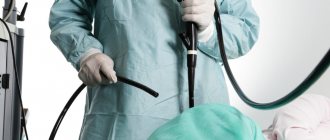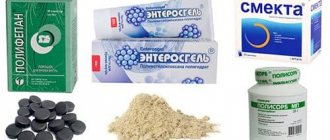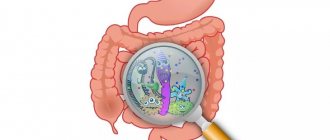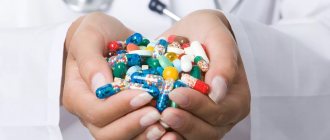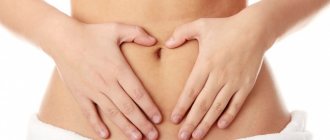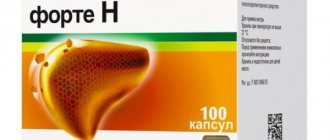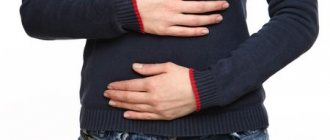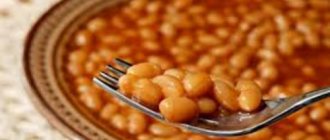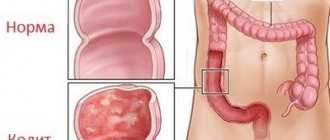The need to restore intestinal microflora
Frequent bowel movements disrupt the natural balance of microorganisms that live in the intestines, leaching out water and electrolytes. The condition is aggravated by antibacterial therapy or incorrectly prescribed medications for diarrhea. All of them pass through the intestinal lumen and affect its condition, the level of lactobacilli and bifidobacteria. The functioning of the entire digestive system, the absorption of nutrients, as well as the stability of local immunity depend on the latter.
To avoid the adverse effects of diarrhea, as well as drug therapy, intestinal restoration must begin from the onset of the first signs of the disorder, throughout treatment and for some time after successful recovery. As a rule, the course takes from 10 to 30 days.
To restore and normalize the functioning of the digestive tract after diarrhea, probiotics and prebiotics are prescribed. This group of drugs also helps strengthen local immunity, normalize intestinal motility and lead to the formation of feces after diarrhea.
https://youtu.be/QiLSpa2Myyg
Prebiotics and their role in restoring the body after diarrhea and diarrhea
Some people tend to confuse prebiotics with probiotics. In fact, these are different means, and the mechanism of their action is fundamentally different: probiotics “populate” the intestines with beneficial bacteria, prebiotics provide conditions for their engraftment and active reproduction.
Prebiotics for the treatment of diarrhea can be synthetic and natural. Natural ones include asparagus, onions, garlic, tomatoes, bananas, artichokes, chicory: they can be consumed in limited quantities and only with the permission of a doctor, since the substances included in these products can harm the body depleted by diarrhea. The dose of the necessary substances in synthetic prebiotics is strictly adjusted, so they are considered safer. The most popular drugs are Goodluck, Duphalac, Portalac, Prelax, Lactusan, Lactofiltrum, Inulin and lactulose syrup.
Rules for recovery after diarrhea
Restoration of intestinal microflora after diarrhea takes a long period of time. You can speed up the process by following a special diet. At this time, you should consume fermented milk products, which have a beneficial effect on the activity of lactobacilli and bifidobacteria, which help restore intestinal balance after diarrhea. Greens are a source of vitamins to increase local immunity.
Natural intestinal cleansers will be vegetables and fruits, which contain a large amount of fiber necessary for the removal of toxic compounds, the formation of stool and the restoration of the digestive tract after diarrhea.
An important stage in recovery from diarrhea is maintaining a drinking regime. Sufficient fluid intake will help prevent dehydration of the body, help cope with flatulence and remove toxins that are formed during the life of pathogenic microflora.
A large amount of water with potassium permanganate will also help induce vomiting, which will help cleanse the stomach in case of poisoning with food, heavy metals, chemical compounds, which will help reduce the severity of other symptoms.
During the acute period of diarrhea, bed rest should be observed to successfully restore the body. During the recovery period after illness, you should alternate between work and rest. It is important to avoid physical activity during the first month, which can increase the recovery period after diarrhea.
During the treatment of diarrhea, you should take medications prescribed by your doctor. Spontaneous selection and use of medications will worsen the condition and prolong the recovery period.
Treatment of intestinal infection
The patient's condition and the nature of the infection are fundamental factors in selecting a treatment regimen.
General
- An antibiotic that acts on the pathogen.
- A drug for restoring intestinal microflora (Linex, Bifiform).
- Drink plenty of both plain boiled water and special solutions (rehydron). In case of dehydration, droppers are prescribed (Ringer's solution, Acesol, saline solution).
- Adsorbents (charcoal, enterosgel).
Diet therapy
Adults and children are not breastfed.
- You should eat 5-6 times a day in small portions.
- Mechanical, thermal and chemical sparing of the gastrointestinal tract. All food should be warm, steamed, boiled or baked, easily digestible. It is necessary to exclude sour, spicy, fatty, fried, canned foods.
- Food should be rich in protein and quality carbohydrates. Rice porridge, buckwheat with water, meatballs and cutlets from veal, rabbit, turkey, chicken.
- Consumption of fermented milk products with a low fat content. In addition to the nutritional effect, kefir and yogurt are a source of lacto- and bifidobacteria, which are necessary to restore intestinal microflora.
- Excluded from food: fresh vegetables and fruits, sweets, flour, milk. It is undesirable to consume foods that stimulate gas formation: cabbage, legumes, grapes.
- From the very beginning, you need to give the patient more boiled and baked vegetables and fruits (apples, potatoes). During the digestion process, pectin is released from them, which has an adsorbing property. Passing through the intestines, it collects the remains of waste and toxins, helping to improve the patient’s condition. Today in pharmacies there are drugs whose main active ingredient is pectin (Pepidol), they can be given even to small children.
Infant nutrition
The optimal food for infants was and is mother's milk. It is best to adhere to the free feeding regime (but not less than every 2 hours, 50 ml). If necessary, the baby should be woken up. Then the child will receive a sufficient amount of food balanced in all nutrients. If the mother takes pity on the baby, does not wake her up for feeding and refuses to try to supplement the child against the will of the child, then complications may develop (hypovolemic shock, renal and cardiovascular failure).
If the child is bottle-fed or bottle-fed, then the choice is made in favor of lactose-free or low-lactose formulas (Nutrilon, Humana, Frisopep). If a child needs supplemental drinking, then special solutions (for example, rehydron) are prescribed.
Children receiving supplementary feeding can eat rice and semolina porridge with water, cottage cheese, jelly, hard-boiled yolk, meatballs, and vegetable puree.
After recovery, the recovery process continues for a long time, depending on how severe the infection was.
You should continue to follow the diet for at least 2 weeks, then you can slowly begin to introduce new foods.
For a month, medications are taken that restore the intestinal microflora (Linex, Bifiform, Primadophilus).
If necessary, you can take enzymes (mezim, panzinorm, festal, wobenzym).
Restoration of microflora with the help of medications
To eliminate the causes of diarrhea, antibacterial and antiviral drugs are prescribed, which can also disrupt the natural environment of the gastrointestinal tract. To restore intestinal flora after diarrhea and antibacterial treatment, you should follow your doctor’s recommendations regarding taking medications and their dosage. For the purpose of rehabilitation, probiotics, rehydration solutions, sorbents and enzymes are prescribed.
Recovery with probiotics
Diarrhea leads to the leaching of bifidobacteria and lactobacilli from the body - beneficial microorganisms that are necessary for the normal functioning of the gastrointestinal tract. To restore their levels, probiotics and prebiotics are prescribed, which act in the small and large intestines, respectively.
Most often, probiotics such as Linex, Yogulact, Bifidumbacterin, Hilak Forte and prebiotics: Portalac, Normaze, Inulin are prescribed to restore flora after diarrhea. The frequency of administration and duration of rehabilitation therapy depends on the severity of diarrhea and lasts from 10 days to several months.
Restoring water-salt balance
To prevent the leaching of fluids and electrolytes, as well as to restore the water-salt balance during diarrhea, rehydration solutions are prescribed. These include: Oralit, Regidron, Gastrolit. To prepare the solution, you need to dissolve 1 sachet of powder in 1 liter of boiled water and drink it throughout the day (no more than 2 tablespoons at a time).
A solution for restoring water and electrolyte balance after diarrhea can also be prepared independently. To do this, you need to dissolve 1 tsp in 1 liter of boiled and cooled water. salt and soda, as well as 1 tbsp. l. Sahara.
Restoring the intestines with enzymes
Enzymes that are necessary for the digestion and absorption of nutrients from food will help you recover from diarrhea. For this purpose, drugs with pancreatin are prescribed: Festal, Panzinorm, Creon, Mezim, Pancreatin.
The dosage of drugs is individual and is selected by the attending physician based on the degree of digestive tract disorder, the patient’s body weight, as well as the presence of concomitant gastrointestinal pathologies. As a rule, to recover from diarrhea, 150 thousand units of the active substance or 1 tablet three times a day are prescribed.
Restoring intestinal function using adsorbents
Recovering from diarrhea and restoring the functioning of the digestive tract will help by taking sorbents, which, thanks to their absorbent action, absorb toxins and infections, which are the main causes of diarrhea, and remove them from the body. They also thicken stool, help cope with the increased formation of gases in the intestines, and thanks to their enveloping properties, they prevent damage to the mucous membranes and speed up the healing process.
For diarrhea, adults are prescribed:
- Smecta with a daily dosage of 6 sachets;
- Activated carbon 1 tablet for every 10 kg of patient weight;
- Polysorb with a daily dosage of 0.2 g/kg;
- Enterosgel 1-1.5 tsp. three times a day.
Traditional recovery methods
When studying how to restore intestinal flora after diarrhea, you need to point out the effectiveness of traditional methods of treatment. The most common recipes that improve digestion are:
- dill seeds are a completely safe remedy and can be used even by children; To restore the intestines you need 2 tbsp. l. pour 1 cup of boiling water over the plants; leave for several hours, then strain; use 3 tbsp. l. every couple of hours;
- a composition of dried fruits is an excellent remedy for diarrhea, finely chop prunes and dried apricots and add a little honey, take 1 tbsp. l. daily for 30 min. before meals for 21 days;
- mint with eucalyptus - you will need 5 tbsp. l. dry plant and 1 tbsp. l. mint, after which all this is poured into half a liter of hot water, leave for 2 hours, the dosage is as follows: 2-3 tbsp. l. before each meal, the duration of administration is determined by the general condition of the person, can reach up to 1 month;
- plantain root – has a large number of microelements that are beneficial for the intestines; infuse it in a water bath for 15 minutes, use the cooled infusion in 2 tbsp. l. three times a day;
- mash - to prepare an antidiarrheal agent you will need 1 liter of warm liquid, add 2 g of dry yeast, 1 tbsp. l. honey, sugar; the composition is aged for a couple of hours; consumed between meals; microorganisms that provoke fermentation kill pathogenic bacteria;
- chicken gizzards - dry inner membranes are ground into powder, take 1 tsp. twice a day with a glass of water;
- rolled oats - daily consumption of liquid porridge in the morning on an empty stomach will help you forget about intestinal upset;
- calamus and plantain - a couple of tablespoons of both dried plants are poured with boiled water; leave to infuse in a dark, cool place for 3 hours; The remedy should be consumed before meals, 3 tbsp. l. for 2 weeks;
- pumpkin seed - will help restore activity and get rid of parasites; you will need a couple of tablespoons of chopped walnuts and seeds, fill them with 1 cup of boiled liquid; Directions for use: 1-2 tbsp. l. pre-meal preparations; The therapeutic course is 2 weeks;
- fermented milk products - cottage cheese, kefir contain lactobacilli, which normalize the intestinal flora; The main thing when buying is to look at the production date; you should not consume expired goods, it will harm the digestive system even more.
Restoring microflora with folk remedies
Traditional medicine recipes, which are used in conjunction with drug therapy, will help restore intestinal function after diarrhea. Rice water has an astringent effect, which helps reduce intestinal motility and reduce the number of bowel movements. To prepare it, you need to pour the cereal or flour with water in a ratio of 1 tbsp. rice 7 tbsp. water. Bring to a boil and simmer for half an hour. Take the resulting decoction for diarrhea, 50-100 ml three times a day.
An infusion of dried pears also helps reduce intestinal motility. To prepare it you need 4 tbsp. l. fruits pour 1 tbsp. boiling water and leave for 4 hours. Take 30 ml before each meal for diarrhea. This remedy also helps improve local and general immunity.
To strengthen the protective properties of the intestines, you can prepare a decoction of rosehip, cranberry or rowan. For this, 3 tbsp is enough. l. fruits pour 1 tbsp. water, bring to a boil and leave for 15 minutes.
Causes and symptoms of intestinal disorder
Diarrhea caused by infection kills most of the food-processing bacteria. The number of pathogenic microbes is growing rapidly, they spread, releasing toxic substances. This also happens with chemical poisoning. Intestinal disease is also caused by other reasons:
- poor nutrition;
- drinking alcoholic beverages;
- depression, stress;
- general intoxication of the body;
- low immune system;
- hormonal disorders;
- decrease in the absorption function of the gastric tract.
Sometimes the cause of poor absorption is increased intestinal motility. Frequent contractions lead to the fact that food and water move through the gastric lumen faster and are not able to be absorbed properly.
Signs of microflora disorder are individual for everyone. Some only experience diarrhea. Increased growth of pathogenic organisms is associated with decreased metabolism. When dehydrated, salts and minerals come out with water. A person begins to develop vitamin deficiency.
Symptoms of intestinal disorders are as follows:
- increase in body temperature;
- discomfort and cramping in the abdomen;
- diarrhea;
- allergic manifestations, eczema;
- aching pain in the lower abdomen;
- increased gas formation;
- sudden change in mood, anxiety;
- dry skin, brittle nails, hair;
- malaise, dizziness.
Dysbacteriosis disrupts the entire digestive system. The body does not receive the necessary substances, so nausea and vomiting occur. Fermentation occurs, the rotting of undigested foods. Congestion is characteristic, the intestines are not completely freed, belching occurs, and the feeling of rotten eggs in the oral cavity occurs. Therefore, you can avoid the unpleasant symptoms of the disease if you know how to restore intestinal function after diarrhea.
Diet for recovery after diarrhea
A special diet for diarrhea is necessary to normalize the general condition and restore intestinal function. In the first day of an acute period of diarrhea, for recovery, it is recommended to completely exclude food, giving preference to liquid, which will also help replenish the water deficit in the body. On the first day, it is recommended to drink dried fruit compotes, rice water, and unsweetened strong tea.
When recovering from diarrhea, it is recommended to give preference to herbal teas with chamomile, thyme, plantain, St. John's wort, and nettle.
Starting from the second day, you can include chicken broths and fruit juices in your diet. It is recommended to consume liquid or pureed foods. Among cereals, preference should be given to rice, buckwheat and oatmeal, which should be cooked to a slimy consistency.
Antibacterial therapy after diarrhea, how to restore the body after intestinal disorders?
With diarrhea, the process of breakdown and absorption of food in the small intestine is disrupted, which creates fertile ground for the proliferation of pathogenic microorganisms. To suppress their activity during the period of recovery of the body after diarrhea, various types of antibacterial agents are used:
1 penicillin (Amoxicillin, Oxacillin);
2 tetracyclines (Tetracycline, Doxycycline);
3 cephalosporins (Ceftriaxone, Cefixime);
4 fluoroquinolones (Tsiprobay, Tsiprinol);
5 nitroimidazole (Flagyl, Tiberal).
The type and duration of taking an antibacterial agent is determined by the attending physician based on the cause of diarrhea, the general condition of the body, and the type of pathogenic microorganisms that are “out of control.” Treatment and restoration of the body after diarrhea is not an easy task. The standard course of treatment involves taking the selected drug for five to ten days.
Prevention of diarrhea
To prevent diarrhea and speed up the recovery process from diarrhea in adults, you need to:
- lead an active lifestyle, play sports;
- to refuse from bad habits;
- Healthy food;
- eat thermally processed meat and fish;
- wash your hands with soap before eating, after returning from the street and after using the toilet;
- wash vegetables and fruits with soap under running water;
- drink more than 1.5 liters of water during the day;
- observe the work and rest schedule;
- avoid nervous tension.
If weakness or nausea occurs, you must take the sorbent in accordance with the instructions and seek advice from a specialist.
To recover from diarrhea, you should take probiotics to normalize the gastrointestinal microflora, enzymes to improve the process of food absorption, sorbents to remove toxic compounds and rehydration solutions to replenish the deficiency of fluid and electrolytes. It is necessary to supplement the recovery course with a diet, the observance of which will reduce the severity of symptoms of intoxication and restore intestinal motility.
Stool disorder accompanies most diseases of the gastrointestinal tract. Diarrhea leads to changes in the intestinal microflora, leaching of microelements necessary for the body. After the use of pharmacological drugs, the patient's general condition improves, but relatively more time is required for intestinal recovery. How to restore the intestines after diarrhea and what you need to use for this, you can learn from this article.
Prevention
It is very difficult to prevent the destruction of beneficial bacteria when diarrhea begins. You should try to prevent the development of diarrhea if the cause of the illness is not an infectious disease or treatment with antibiotics. To do this, you will have to get rid of harmful stereotypes, lead a healthy lifestyle, eat right, and try to avoid stress.
If you suspect gastrointestinal diseases, you should visit a doctor to begin treatment in a timely manner. If there is a need to take antibiotics, in parallel you should use drugs that will maintain the microflora in a normal state.
In what situation is intestinal restoration required after diarrhea?
With chronic diarrhea, the body loses large amounts of electrolytes and water. In this case, the microflora suffers, since the intestinal walls are colonized by pathogenic microorganisms. The use of pharmacological agents that affect the infection further suppresses the microflora.
To restore intestinal function after diarrhea, long and labor-intensive treatment is necessary. Due to malabsorption, most of the drugs to improve the condition of the gastrointestinal tract bypass it. The use of incorrectly selected therapy has a detrimental effect on the microflora, killing the remaining beneficial bacteria, as well as negatively affecting the humoral immune cells located in the intestines.
Intestinal restoration in children
Disorders of the intestinal flora in children do not differ from the course of pathology in adults. The general condition of the child and signs of microbial imbalance depend on age, the causes of damage to the intestinal flora, and the degree of the disease. It is difficult to recognize dysbiosis in a breastfed baby under six months old. It is necessary to carry out bacterial culture of stool.
Long-term dysbacteriosis weakens the body and reduces immunity.
Babies can be prescribed normoflorins from birth. These are preparations that contain live bifidobacteria and lactobacilli. The special prebiotic Lactit stimulates the development of the child’s own microflora. The third component is the metabolic products of living bacteria. These include amino acids, minerals, vitamins, and antimicrobial substances. The drug is produced in liquid form and does not contain lactose or cow's milk proteins.
At the first sign of diarrhea, you can take Smecta. The drug has an adsorbent and antidiarrheal effect. Smecta will not only help improve the functioning of the baby’s intestines, but will also protect the mucous membrane from the aggression of pathogenic microorganisms and their toxins. In addition to medications, the child needs a balanced healthy diet and nutrition.
Medicines to normalize bowel function
Drugs for restoring intestinal microflora during diarrhea are selected exclusively by a specialist. The modern approach to the treatment of complications after diarrhea involves dividing drugs into 3 large groups: synbiotics, probiotics, prebiotics.
The most progressive pharmacological agents that produce a minimum of side effects are synbiotics. Preparations in this group contain an equal part of pro- and prebiotics. Once in the human body, synbiotics:
- normalize disturbed microflora of the gastrointestinal tract;
- stimulate the growth of beneficial bacteria, providing favorable conditions for their reproduction;
- protect the mucous membrane from irritation.
Synbiotics are often produced in capsule form. The outer shell protects the bacteria from the influence of gastric juice and pancreatic enzymes that act on the drug at the beginning of the small intestine. Gradually, passing through the gastrointestinal tract, the membrane dissolves. Lacto- and bifidobacteria, necessary for normalizing fermentation processes, are released in the large intestine.
Prebiotics are components of the drug that cannot dissolve in the stomach and small intestine. Reaching the large intestine, prebiotics interact with its microflora. Thanks to this, bacteria secrete specialized enzymes that stimulate their reproduction.
Probiotics are drugs that are used to restore intestinal microflora. Preparations in this group contain microflora components, that is, some strains of living microorganisms. Taking probiotics ensures the restoration of microflora by replenishing missing bacteria with subsequent stimulation of their reproduction.
To restore intestinal function after diarrhea, it is necessary to undergo a course of treatment with specialized pharmacological drugs. The selection of treatment is carried out by the doctor on an individual basis after preliminary diagnosis. Self-medication may not bring the desired result or worsen the current condition by turning the pathology into a chronic form.
What is not recommended to take
After prolonged stool disorder, it is better to exclude the following foods from the diet:
- Hot and cold drinks irritate the mucous membranes of the gastrointestinal tract. A damaged inner lining interferes with the restoration of intestinal microflora. Drink warm water to avoid additional troubles.
- Limit the consumption of foods that contribute to increased gas formation. The situation concerns legumes (beans, peas, lentils), and various store-bought sauces.
- You will also have to wait a bit with your favorite sweets. They suppress the activity of lacto- and bifidobacteria.
- Nuts, tomatoes, and cabbage should absolutely not be eaten during recovery. A month of giving up these foods will bring the desired result - normalization of intestinal function.
- Long-term uncontrolled use of various medications, especially antibiotics and sulfonamides, will not lead to anything good. The situation does not apply to medications taken for chronic diseases. If diarrhea occurs while taking medications for such diseases, consult a doctor immediately. Perhaps this medicine is not suitable for you; it is better to replace it with an analogue.
Diseases accompanied by diarrhea lead to unpleasant consequences. One of them is dysbiosis. To completely restore the intestines after diarrhea, you need to try.
The article was approved by the editors
Restoring water-salt balance
Systematic diarrhea for several days, provided that the stool changes to watery, is the cause of water-salt imbalance. The gastrointestinal tract loses large amounts of electrolytes and fluid. In such situations, dehydration is diagnosed. The condition is dangerous due to the possibility of complications, so if it is detected, treatment must be started immediately.
To restore the water-salt balance, the following means are used:
- therapy using chemical compounds;
- pharmacological agents;
- patient hospitalization.
The use of chemical compounds means the use of specialized salt solutions that are sold in pharmacies. The composition of such products includes sodium, potassium, magnesium. Taking saline solutions helps replenish electrolyte deficiency in the body caused by diarrhea and vomiting. The use of drugs of this kind requires a temporary (for the period of treatment) refusal of kitchen salt.
To normalize water and electrolyte balance, mineral or mineral-vitamin complexes are used. The duration of the course of such treatment is about a month. This is followed by a break of several weeks, after which a course of maintenance therapy is prescribed.
In especially severe cases, inpatient treatment is necessary to normalize the patient’s condition and restore water and electrolyte balance. Therapy in a hospital setting involves transfusion of plasma or saline solutions. Plasma is used in severe cases of acute dehydration.
To restore the water-salt balance during diarrhea, the use of specialized mineral waters is practiced. The use of such a liquid helps replenish water reserves and also increases the level of electrolytes.
Folk remedies for restoring the body after diarrhea, how to stop diarrhea at home?
Along with pharmacological drugs, it is recommended to use the following folk remedies:
1 Infusion of St. John's wort: twenty grams of herb are poured into a container with five hundred milliliters of alcohol or vodka and put in a dark, dry place. After three weeks, filter and take thirty drops (after dissolving them in a glass of boiled water) before each meal.
2 Pear decoction: pour two tablespoons of chopped pear pulp into a glass of boiling water, filter after five hours. Take two tablespoons orally half an hour before meals.
3 Rice water: pour a glass of rice into seven glasses of water, put on low heat and simmer until the grains begin to fall apart. The finished broth is filtered, cooled and taken orally every three hours.
4 A mixture of carbolene and garlic: add juice squeezed from several cloves of garlic to the carbolene powder and place the mixture in the oven. When the liquid evaporates, the powder is taken out and cooled. The product is taken in a volume not exceeding a third of a teaspoon, half an hour before meals.
Pharmacological and folk remedies for treating intestinal disorders can quickly get rid of this disease. Unfortunately, even if the main symptoms of the disease have passed, complete recovery takes up to 2 months. There are several reasons for this, including the general condition of the body, the nature of the disease, and the tactics of previous treatment. How to recover from a bowel disorder, and what activities are included in the rehabilitation treatment complex - you will find out by reading the article.
Listen to the article:
During frequent and liquid bowel movements, the intestines lose water and minerals along with feces. Therefore, restoring the water-salt balance is what needs to be done first.
Modern pharmacology offers the following rehydrating drugs: Oralit, Regidron, Gastrolit, Glyuksolan. If it is not possible to visit a pharmacy, the solution can be easily prepared at home.
It will require:
- 1 liter of boiled water (pre-cooled),
- 1 tbsp. l. Sahara,
- 1 tsp. soda,
- 1 tsp salt.
Drink saline solution in small doses (no more than 2 tsp per dose) every 10-15 minutes for 1-2 days. The intake rate is usually calculated according to the scheme 50-70 ml per 1 kg of weight, but the daily dose should not exceed 180-200 ml.
In addition to medicinal methods of fluid restoration, the following can help: still mineral water, tea (black or green), dried fruit compotes, juices (orange, cherry, pear, grapefruit).
Drinks must be prepared without sugar and must be hot processed.
Restoring intestinal microflora to normal levels, improving motility and absorption require special attention. Without proper functioning of the digestive organs, chronic dysbiosis may develop in the future, which often leads to new gastrointestinal diseases.
After diarrhea, the growth of pathogenic microflora in the small intestine is possible, since during the illness undigested pieces of food entered it. The process of decay begins. To suppress it, antibacterial agents of the following groups are used:
- penicillins: Oxacillin, Amoxicillin;
- fluoroquinolones: Tsiprobay, Tsiprinol;
- tetracyclines: Tetracycline; Doxycycline
- nitroimidazoles: Flagyl, Tiberal;
- cephalosporins: Ceftriaxone, Cefixime.
The intake of medications is agreed with the doctor and is carried out under his supervision. As a rule, these are standard doses that are taken depending on the complexity of the disease, approximately 5-10 days.
Adsorbents are a group of medications that are actively used to restore after intestinal imbalances. Sorbents “collect” all kinds of toxins, viruses, bacteria on their surface and remove them; thicken stool, absorbing excess water from there. By enveloping, they protect the mucous membrane of the gastrointestinal tract. This type of medication reduces gas levels in the intestines.
Common:
- Activated carbon;
- Smecta;
- Polyphepan;
One of the means of rehabilitation of damaged microflora after recovery from diarrhea is enzymes. In gastroenterology, enzyme-containing drugs began to be used 100 years ago. They are not ignored in modern medicine either. It is recommended to take Pancreatin, Penzital, Creon, Pancitrate. The bile acids contained in their composition are intended to stimulate the motility of the digestive organs, as if “rocking” them. This ensures the movement of food digested in the stomach into the intestines and promotes the absorption of nutrient solutions into the blood.
Probiotics are essentially beneficial bacteria and are flushed out of the body when you have diarrhea. To restore the microflora, the following preparations are intended: Eubicor, containing specially processed wheat bran and “killed” baker’s yeast. Eubicor has virtually no contraindications; it is compatible with all types of rehabilitation therapy, even with antibiotic treatment. Taken at equal intervals 2 times per hour until complete recovery.
Probiotics include the widely advertised drugs Hilak Forte and Linex. The 1st contains products for the normal process of microflora metabolism, the 2nd contains two types of bacteria for the small intestine and one type for the large intestine. Both drugs are very effective and are approved for all groups, including newborns, pregnant women and women during breastfeeding.
To ensure that probiotics can restore the functioning of the gastrointestinal tract after diarrhea and help the body enter a normal rhythm, prebiotics are used. This, so to speak, is “food” for beneficial bacteria, the support they need. The choice of prebiotics is very extensive:
- Goodluck (lactulose);
- Inulin (inulin);
- Importal N;
- Duphalac;
- Lactulose syrup;
- Livolyuk PB;
- Portalak;
- Lactusan;
- Normaze;
- Prelax;
- Lactofiltrum and Lactofiltrum-Eco;
- Stimbifid (oligofructose, inulin, microelements, vitamins E, PP, C, B, selenium, zinc);
- Romphalac.
Prebiotics are found naturally in tomatoes, asparagus, onions, garlic, artichokes, chicory and bananas. However, when choosing products with prebiotics, you should take into account that some of them are recommended by the diet when recovering from intestinal disorders and diarrhea, and some are prohibited.
Folk remedies for normalizing intestinal function
Speaking about how to restore the intestines after diarrhea, it is necessary to note the effectiveness of traditional medicine recipes. The most common folk remedies that are used to normalize digestion after diarrhea are:
- Dried fruit mixture. To restore the normal functioning of the gastrointestinal tract, a mixture of dried apricots, prunes, and honey is used. Dried fruits must be cut into small pieces or crushed using a blender. It is recommended to take a tablespoon half an hour before meals every day for 2-3 weeks.
- Rolled cereal. Systematic intake of watery rolled oats on an empty stomach every morning will help cope with problems caused by diarrhea. It is better to start taking it with the cereal itself on the water. Gradually, you can introduce a small amount of honey or dried fruits.
- Dairy products. In order to normalize the disturbed microflora, it is recommended to take kefir or cottage cheese. The products contain natural lactobacilli, which help improve your well-being. When choosing fermented milk products, you need to pay attention to the expiration date. Expired products will not only not help the intestines, but can also be harmful.
- Burnet plant. A few tablespoons of dried burnet root are poured with hot water. The liquid is infused for several hours, then filtered. For treatment it is recommended to take 4-5 times a day, for prevention - 1-2.
- Dill seeds. Dill is completely safe. It can be given even to newborn children. To restore the intestines after diarrhea, you need to pour a few tablespoons of dill seeds into a glass of hot water. Leave for several hours, after which the liquid is filtered. You can drink 2-3 tablespoons of dill water every few hours.
- Calamus and plantain. A few tablespoons of dried plantain and crushed calamus root are poured with boiling water. Then you need to leave the liquid in a dark, cool place so that it can brew for 2-3 hours. You need to drink 2-3 tablespoons of the medicine before meals. The course of treatment is 10-14 days.
- Braga. For 500 ml of warm boiled water you need to take 1 gram of yeast and 1 tablespoon of honey. Leave the liquid for 3-4 hours. Due to fermentation processes, beneficial microorganisms are formed. You need to take a few tablespoons of liquid an hour before meals. The use of this medicine in pediatric practice is contraindicated.
- Cranberry or rosehip. Sour berries will help normalize microflora. To restore the gastrointestinal tract, it is recommended to take a decoction of berries daily for several weeks.
- Pumpkin seeds. Pumpkin seeds will help you resume activity and cleanse your intestines of helminths. You need to take a few tablespoons of seeds and walnuts. Seeds with nuts are poured with a glass of boiling water after grinding in a blender. Take 1-2 tablespoons before meals. The course of treatment is 10-14 days.
- Infusion of field herbs. You need to take several tablespoons (in equal proportions) of dried crushed lemon balm, chamomile, St. John's wort, and flax. Pour 300 ml of warm boiled water over the herbs. Leave for several hours in a cool, dark place. Take 2-3 tablespoons daily before meals for several weeks.
- Eucalyptus and mint. Take 5 tablespoons of dried crushed eucalyptus to 1 tablespoon of mint. Pour 500 ml of warm boiled water over the herbs. Infuse, covered with a lid, for 2 hours. Take a few tablespoons before each meal. Depending on the patient’s condition, of course, treatment can last up to a month.
Folk remedies are widely used to restore intestinal microflora after diarrhea. Despite the natural origin of such drugs, their use may cause an allergic reaction or other side effects. In order to prevent them, it is recommended to consult a specialist before use. When using folk remedies, it is also necessary to take into account their combination with pharmacological drugs (if any are taken).
Treatment options
To select adequate treatment and improve the functioning of the gastrointestinal tract, you need to know the cause of the disorder. You can restore the intestines after diarrhea using pharmaceutical drugs, folk remedies and diets.
Medications
If the number of harmful microbes exceeds the permissible values, the patient is prescribed antibacterial therapy. These are antimicrobial drugs based on ciprofloxacin: Tsiprinol, Tsiprobay. A broad-spectrum antibiotic with the active ingredient metronidazole - Flagyl. Medicines eliminate rotting and inhibit the growth of pathogenic flora.
To restore the intestines, prebiotics, probiotics and enzyme preparations are prescribed. Probiotics are live beneficial bacteria that are so necessary for the human body. A pharmaceutical preparation may contain one type or several types of microorganisms. The probiotic restores the microflora disturbed after diarrhea. For example, Linex contains lactic acid bacteria. Yogulact capsules contain four types of microorganisms. Bifidum-multi-1 contains maltodextrin and six types of bacteria.
The group of prebiotics are substances of non-microbial origin. Unchanged, they pass through all parts of the gastrointestinal tract, and in the large intestine, under the action of an enzyme, they are converted into “food” for the necessary bacteria; with an increased supply of nutrient substrate, their numbers increase. Prebiotics are prescribed only after diarrhea has resolved. These are Portalac, Lactulose, Goodluck syrups, Inulin tablets and many others.
There are also synbiotics - complex products of probiotics and prebiotics. The drug Bifistim contains bifidobacteria, cellulose, fructose, pectin and vitamins. Eubicor is a powder based on wheat bran with the addition of an inactivated wine yeast culture.
Enzyme preparations will help improve the functioning of a weakened stomach, improve digestion and absorption of nutrients: Pancreatin, Festal, Panzinorm, Mezim Forte. There are different types of medications in this group and you should consult your doctor before taking the drug.
ethnoscience
In order to independently restore the microflora after diarrhea, there are several time-tested recipes. Folk remedies eliminate pain, help with bloating, and destroy harmful bacteria.
Rice water helps with diarrhea. It works as a sorbent and is also nutritious. Rice is cooked in a ratio of 1:4 for half an hour over low heat, then the strained “jelly” is taken in a glass four times a day.
Since the time of our great-grandmothers, there has been a recipe for a product made from the dried inner lining of chicken stomachs. The powder is taken one teaspoon with water, twice a day.
A herbal mixture of equal parts of St. John's wort, chamomile, and flaxseed is brewed at the rate of 2 tablespoons per 500 ml of boiling water. After an hour, the infusion is filtered and drunk in three doses. The drink has an anti-inflammatory and strengthening effect.
Mint and sage have antimicrobial properties - they can also be used in the fight against pathogenic intestinal flora.
Plantain root contains many microelements that the intestines need so much. It is kept in a water bath for 15 minutes, after cooling, the strained infusion is taken in 2 tbsp. spoons three times a day.
One of the popular means to restore microflora is mash. To make an antidiarrheal remedy, take a liter of warm water, add a tablespoon of sugar and honey, and 2 g of yeast. The mash is kept for two hours and drunk between meals. Bacteria that cause fermentation destroy harmful microorganisms, which is why mash is so effective.
Nutrition rules
After diarrhea, the water-salt balance is disturbed, so it is necessary to adjust the drinking regime. There are drugs that replenish the reserves of essential microelements. So, for dehydration from acute diarrhea, sodium chloride is prescribed. You can use complex products: Regidron, Oralit, Gidrovit forte. Before use, you should consult a specialist, since the choice of the appropriate drug depends on the causes of dehydration.
The diet is composed taking into account the balance of proteins and carbohydrates, which provide the body with energy. Proteins are necessary for the construction of cells and tissues, and they also perform protective functions. Dietary fiber from vegetables and grains has an antibacterial effect. When they are digested, acids and substances are formed that heal the mucous membrane, thereby improving the absorption of microelements.
To boost immunity, tea is prepared from rose hips and cranberries.
On the first day after diarrhea, the body needs a water break. You can drink still mineral water, rice and herbal decoction, and strong tea. You need to expand your diet gradually, adding a different product every day. On the second day you can eat crackers, rice, buckwheat or oatmeal. Prepare boiled chicken and low-fat steamed fish.
Boiled vegetables are gradually added to the menu. Carrots, cauliflower, zucchini, baked apples, and jelly are allowed for consumption. You should eat at least five times a day in small portions. Food should only be warm. Puree vegetable soups and slimy porridges are useful.
Spicy, fatty and fried foods with seasonings and sauces, sour fruit and berry juices, as well as alcoholic drinks are prohibited for diarrhea.
People with flatulence will have to exclude legumes, milk, sweets and fresh baked goods. You should not consume fermented dairy products in the first two days, as they contain a lot of lactic acid bacteria, which can again cause diarrhea. They can be added to the menu on the third day, and fresh milk is allowed to be drunk only after a week.
To treat dysbiosis, therapeutic fasting is used. This method should be discussed with a doctor so that the benefits of fasting do not turn out to be less than the harm from eating. The restoration of microflora is negatively affected by a lack of movement and physical activity.
Diet
To restore bowel function after diarrhea, you must adhere to a specialized diet. Proper nutrition is the key to recovery. In the first time after an illness, the body’s strength is depleted, so the diet should be as simple as possible. For this purpose, non-rich broth, low-fat fermented milk products, weak unsweetened tea or diluted juices are suitable.
The diet of a patient with a history of diarrhea should be rich in pectins - plant soluble fibers that help normalize digestion. A large amount of pectin is found in bananas, fruit purees, and yogurts without additives.
To quickly restore bowel function after diarrhea, it is recommended to adhere to the following tips:
- Eat jacket potatoes (a source of potassium);
- There are foods rich in proteins. This includes turkey, chicken, beef, lean fish and cottage cheese, eggs;
- Temporarily avoid fresh fruits and vegetables. It is better to give preference to heat-treated products;
- Limit your intake of white bread.
Diarrhea is a serious illness that requires immediate treatment. Along with taking medications aimed at combating loose stools, it is recommended to start taking medications to restore the intestines. To choose treatment tactics, it is recommended to consult a specialist. The correct selection of medications, as well as completing the entire course of treatment, is the key to normalizing the microflora and improving the patient’s well-being.
Few people in their life have not suffered from such a disease as indigestion. However, if not properly treated, a normal illness can turn into severe diarrhea.
Possible complications and consequences
The course of the disease in most cases is moderate. With the right treatment tactics, complications do not occur, but sometimes the infection becomes life-threatening for the child.
Why is it dangerous?:
- severe dehydration;
- acetonemic syndrome;
- convulsions;
- neurological disorders (neurotoxicosis);
- acute renal failure;
- diarrhea or constipation;
- asthenic syndrome;
- cough;
- repeated rotavirus.
Such complications occur more often in children from 6 months to a year or in older children with impaired immune system function. A rotavirus infection can be accompanied by bacterial pathogenic microflora, which also aggravates the course of the disease and can cause severe toxicosis with exicosis (reduction in the required amount of fluid in the tissues).
Stomach ache
As a rule, after rotavirus the child has a stomach ache. The most common cause of pain in the epigastric region is dysbiosis .
Disruption of normal microflora and its replacement by pathogenic microflora leads to the accumulation of gases in the abdomen. It is not worth giving painkillers or antispasmodics - they will not be able to remove the cause, but will only blur the clinical picture and subsequent diagnosis of complications.
Depending on the location of the pain and the child’s complaints, the doctor may prescribe:
- means for relieving attacks of intestinal colic;
- herbal decoctions or mineral water;
- sorbents;
- oral rehydration solutions.
If the pain is accompanied by:
- vomit,
- heat,
- diarrhea with bloody impurities,
you need to seek medical help. You should also not delay if the pain does not go away within 30 minutes after home treatment.
It is much more dangerous if the cause of pain is pancreatitis . It develops against the background of a virus affecting the digestive system.
With this disease, the child experiences:
- severe pain of a girdle nature,
- repeated vomiting and diarrhea,
- Purple spots may appear on the abdomen.
In such cases, a mandatory consultation with a doctor is necessary.
Loose stools
After an infection, stool can be restored within a week, sometimes up to a month . The damaged mucous membrane needs time to restore its structure and normalize its function.
Meals during this period should be frequent and fractional, in small portions. As little as possible dairy products, fresh vegetables and fruits, especially apples.
Important! Since it is difficult for enzymes to activate in an environment with damaged intestines, it is therefore advisable to take Creon or Linex according to the instructions.
The cause of prolonged diarrhea is also dysbacteriosis . When the mucous membrane is restored, the intestinal microflora is normalized, bacteria will begin to perform their functions and diarrhea will stop. Probiotics are prescribed as an adjuvant.
If in older children this condition is corrected with the help of diet and certain medications, it is much more difficult to deal with diarrhea in children under 1 year of age.
Against the background of rotavirus infection and after it, some children may develop secondary lactase deficiency . This means that the body cannot process milk (lactose), which makes up almost 100% of the child’s diet.
The stool is usually clear, yellowish-white, and often foamy. May occur without previous stimulation. Such children gain weight poorly, lose it, and lag behind in development. They are very restless and weak, and often suffer from colds.
In the treatment of secondary lactase deficiency, it is important:
- dieting,
- the use of enzyme preparations and probiotics,
- symptomatic treatment (for example, against flatulence).
But another important factor is time. As a child develops with a proper diet, the body's enzyme systems are formed, and the diet becomes less dependent on milk and at an older age, dairy products are normally absorbed.
Weakness and lethargy
Even the mildest degree of the disease weakens the body . Since the virus affects the respiratory and intestinal tissues of the organs, children are very exhausted during recovery. Dehydration also leads to general weakness. Intoxication and accumulation of toxins from the pathogen poison the body and thereby weaken it.
At the height of the illness, the child is usually lethargic, may refuse to eat, and the food that enters the body is processed very slowly. The reason for this is that the infection slows down metabolic processes, since at this time all resources are aimed at fighting the disease . Metabolic processes in the synapses of neurons slow down in a similar way, which is clinically manifested by lethargy, drowsiness and weakness.
In severe cases of the disease, weakness can develop into asthenic syndrome . Asthenia, unlike ordinary fatigue, does not subside even after long-term sleep or prolonged rest, lasts longer and requires mandatory treatment.
To restore the child you need:
- normalize the regime and diet high in vitamins and proteins;
- include light physical activity (exercise) in the mode;
- massage;
- do not neglect walks in the fresh air (including before bedtime);
- it is enough to stay in the sun;
- phytotherapy.
These recommendations focus on three main points that are important for combating weakness after illness:
- proper nutrition,
- restoration of muscle tone,
- relaxation of the nervous system.
If after 2-3 weeks the child remains lethargic and tired, you should consult a specialist.
Constipation
Constipation (stool retention) is a common consequence of infection. Constipation can be caused by the disease itself or its treatment.
Causes of constipation:
- penetration of antibodies into the intestinal mucosa . Since rotavirus is sensitive to receptors for milk-processing enzymes, they provoke antibodies to fight them, destroying the intestinal mucosa. Thus, it cannot function properly and process food;
- inflammatory processes . As a result of illness or subsequent dysbiosis, enterocolitis occurs. The intestinal wall cannot conduct elements and water, as a result of which feces remain in the lumen of the organ;
- disruption of enzyme systems . They are disrupted when the pancreas and duodenum are affected, and less commonly the liver. They contain hormones that, under the influence of food, stimulate the production and release of enzymes. In their absence, food is not processed and remains unchanged.
Clinically, constipation is manifested by the absence of stool with normal nutrition . And if it appears, the stool will be dry and hard. Children will complain of stomach pain and bloating.
In such cases, it is necessary to remove the cause of the pathological condition. If this is inflammation, you need to:
- stick to a strict diet,
- continue to replenish the fluid level,
- take sorbents.
Antibiotic therapy is not appropriate in this case, because these drugs do not act on the virus and can aggravate dysbiosis.
When it comes to enzymopathies, you cannot do without multienzyme drugs . They should be prescribed by a doctor according to the age and weight of the child.
In addition, if antidiarrheals are used incorrectly, constipation may occur. In such cases, the use of these drugs should be discontinued. There is no need to change your diet.
Causes of diarrhea
Intestinal infection as a cause of acute diarrhea
The most common cause of diarrhea is acute intestinal infections. Under this name, all viruses, bacteria and parasites that provoke this pathological indigestion are conventionally combined.
Diarrhea due to intestinal infections most often takes the form of acute diarrhea and, if not properly treated, can become chronic. There are two types of this disease in acute intestinal infections:
- With watery stool. Most often caused by bacteria or toxins. It is dangerous due to the loss of large volumes of water, salts and microelements necessary for the body. It should be remembered that watery diarrhea is not recommended to be treated with antibiotics or any other antimicrobial drugs. The appearance of watery stools indicates that beneficial microorganisms are being washed out of the body, therefore, their number in the intestines is sharply reduced. The only exceptions are cases of salmonellosis.
- With bloody inclusions. This type of diarrhea occurs due to the penetration of microorganisms into the intestinal mucosa, destroying it. Often occurs with diseases such as dysentery or salmonellosis.
However, in addition to acute intestinal infections, there are a number of other causes that cause indigestion (diarrhea): intestinal dysbiosis and chronic diseases of the organs involved in the process of digesting food.
The occurrence of diarrhea due to intestinal dysbiosis means a sharp reduction in the number of beneficial microorganisms that help the normal functioning of the digestive system.
Disruption of the normal intestinal microflora allows harmful bacteria to take the place of beneficial ones, which, in turn, causes various disorders and diarrhea, which is protracted and unstable. Diarrhea, in turn, can be a symptom of pathologies such as:
- Chronic enteritis (inflammation of the small intestine)
- Chronic colitis (inflammation of the large intestine)
- Ulcerative type colitis
- Crohn's disease
Probiotics and their role in restoring the body after diarrhea
Diarrhea disrupts the balance of intestinal microflora, which probiotics - products containing beneficial bacteria - are designed to restore. Eubicor, a preparation based on wheat bran and baker's yeast, is especially popular among doctors. The product has virtually no contraindications and is compatible with any type of antibiotics, so it is often prescribed for diarrhea caused by a viral, fungal or bacterial infection.
The second place in the ranking of the most effective probiotic drugs is occupied by Hilak Forte and Linex. Hilak Forte contains substances that normalize the digestion process and restore the balance of intestinal microflora. Linex contains bacteria that have a beneficial effect on the condition of the small and large intestines. Both drugs can be used during pregnancy and lactation; they are not contraindicated for newborn children.
Symptoms of acute diarrhea and its types
Almost every person has experienced acute diarrhea at least once in their life.
Symptoms may vary depending on the cause of diarrhea. Most often, they depend on the individual predisposition of the patient and the influence of other diseases on the course of his intestinal disorder. Conventionally, the symptoms of acute diarrhea are divided into two groups - absolute and optional (conditional). The category of absolute symptoms includes the following:
- Sudden onset of diarrhea
- Increasing the frequency of bowel movements from usual to several times per hour
- The occurrence of weakness and lethargy, drowsiness
- Irritation and itching in the anus
- Development of symptoms of dehydration with prolonged indigestion (pallor, general weakness and drowsiness, decreased volume of urine and its strange color and smell, etc.)
- A sharp decrease (or complete absence) of appetite.
These symptoms are observed in all cases, regardless of the cause and severity of the disease. It should be noted that if the slightest signs of dehydration appear, medical attention is necessary. Conditional symptoms include those that may be present, may appear partially or not appear at all:
- Dizziness
- Vomiting (or nausea)
- Temperature increase
- Pain localized in the navel area, in the upper abdomen.
But regardless of whether the symptoms appear or do not appear, they cannot be treated separately in any case, nor can the disease be triggered. What kind of treatment is needed will be discussed below.
Symptoms of intestinal infection
Manifestations of the disease in adults and children are similar.
- Diarrhea. Stool disorders accompany every intestinal infection. Depending on the pathogen, the nature of the stool may vary: green in salmonellosis, streaked with blood in dysentery, rice-water type in cholera.
- Nausea and vomiting.
- Headaches and stomach pains.
- Temperature increase.
- Dehydration. It grows rapidly in children, especially under the age of 1 year.
- General weakness, fatigue.
Possible complications
- Stomach or intestinal bleeding.
- Hypovolemic shock. Due to dehydration, the volume of circulating blood drops sharply. The patient's condition becomes very serious.
- Kidney failure. Due to dehydration, the volume of urine excreted per day decreases, lower back pain appears, and kidney function is impaired.
- Pulmonary failure. Hypoxia, shortness of breath.
Acute diarrhea: treatment
Acute diarrhea is dangerous due to dehydration
Diarrhea is not the main cause of the disease, it is a symptom. And in order not to aggravate the situation, it is necessary not only to choose the right medication, but also to follow a certain list of recommendations that will allow you not only to get rid of the unpleasant problem, but also to restore the substances and microelements necessary for the body that are lost along with the feces. You should not hesitate to call a doctor or ambulance if:
- Elevated body temperature does not drop below 38 during the day
- Manifestation of the first signs of dehydration - general weakness, thirst, increased vomiting and dizziness
- Bloody or black stool
- Incessant abdominal pain.
The doctor will not only help relieve discomfort and avert the threat of complications, but will also recommend the necessary continuation of treatment, depending on the results of tests for the presence of harmful bacteria in the stool.
If it is not possible to call a doctor or you do not think that your condition requires it, the first thing you need to do is take an astringent medicine. Among those products that should always be on hand just in case are Smecta, which has an almost instant effect, and activated carbon. It is recommended to take these medications at the first sign of diarrhea. The microelements included in their composition quickly restore intestinal function.
Smecta is also good as a restorative. Its solution must be taken on an empty stomach, one glass three times a day. It not only strengthens the stomach in three days of use, but also restores the intestinal microflora, and also replenishes the supply of vitamins and essential microelements.
If you are not a supporter of medications and give your full preference to traditional medicine, then a suitable remedy for combating almost all types of diarrhea is powder from the dried inner films of chicken stomachs.
By taking a teaspoon of this remedy 2-3 times a day, you can not only prevent the further development of the disorder, but also prevent serious consequences caused by a lack of vitamins and nutrients. You need to drink it with plain water. As a rule, with unsevere forms of diarrhea, the measures described are sufficient to improve the condition.
The topic of the video is probiotics in the treatment of diarrhea:
Rotavirus infection in children – recovery period
Children are more susceptible to the virus than adults. Rotavirus intestinal infection in children is accompanied by vomiting and diarrhea. The baby refuses to eat, the stomach does not accept what he has eaten: vomiting and abdominal pain begin.
The temperature quickly rises to 39°C and does not go down for 5 days, the child experiences lethargy and drowsiness all the time.
Children under 2 years of age experience dehydration especially hard; they experience convulsions, heart and kidney problems. The baby is capricious and restless due to tummy pain. Vomiting and loose stools cause weakness in the child.
In infants, rotavirus causes weight loss of up to 1 kg, they stop or sluggishly breastfeed, and regurgitate bile. During recovery, you should not switch your baby to artificial feeding: breast milk is the best medicine. Mother's milk contains antibodies that fight the virus and provides the baby with fluids and nutrition. Breastfeeding calms the baby.
The remedy for a child is sleep; the child sleeps constantly. The body requires rest, after 7-10 days the baby leads a normal lifestyle; don't forget about your diet.
Probiotics will help your stomach work. Due to diarrhea and vomiting, enzyme systems are affected, and the microflora does not immediately return to normal.
